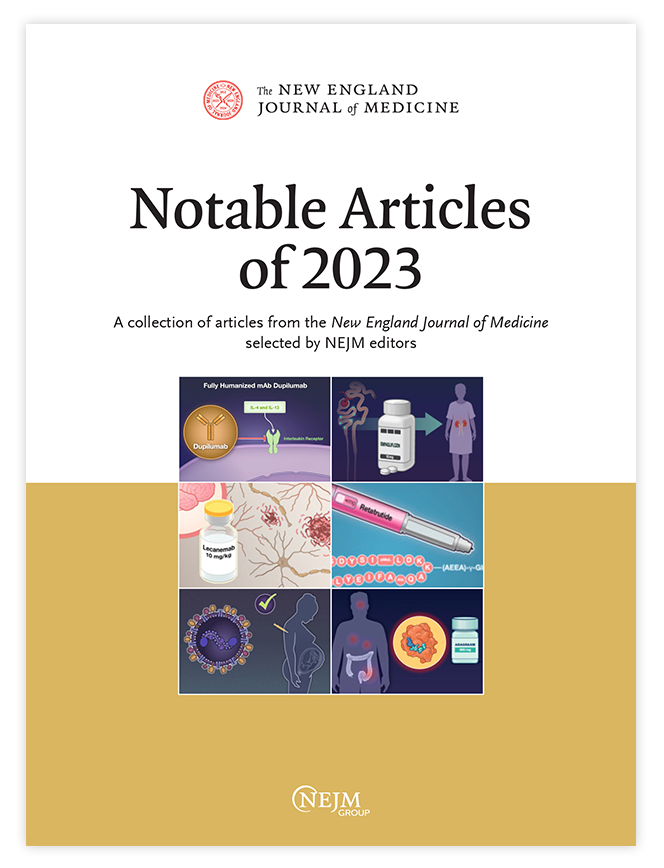宗尔替尼治疗先前治疗的her2突变型非小细胞肺癌
IF 96.2
1区 医学
Q1 MEDICINE, GENERAL & INTERNAL
引用次数: 0
摘要
背景:对于人表皮生长因子受体2 (HER2)突变的非小细胞肺癌(NSCLC)患者,创新的口服靶向治疗是必要的。Zongertinib是一种口服、不可逆、HER2选择性酪氨酸激酶抑制剂,在一项i期研究中显示,该药物对HER2改变的晚期或转移性实体瘤患者有效。我们在一项涉及晚期或转移性her2突变型NSCLC患者的多队列、1a-1b期试验中评估了宗厄替尼。在这里,我们报告了先前接受过治疗的患者对宗厄替尼的初步分析:那些肿瘤中含有酪氨酸激酶结构域突变(队列1),那些肿瘤中含有酪氨酸激酶结构域突变(队列5),那些肿瘤中含有非酪氨酸激酶结构域突变(队列3)。在队列1中,患者最初被随机分配接受120 mg或240 mg剂量的宗厄替尼,每日一次。第5组和第3组患者最初每天服用240毫克。在对队列1的数据进行中期分析后,随后所有队列的招募患者均接受了剂量为120mg的宗尔替尼治疗。主要终点是通过盲法独立中心评价(队列1和5)或研究者评价(队列3)评估的客观反应。次要终点包括反应持续时间和无进展生存期。结果在队列1中,共有75名患者接受了剂量为120mg的宗尼替尼治疗。在数据截止日期(2024年11月29日),71%的患者(95%置信区间[CI], 60 - 80;P<0.001(≤30%基准)有确定的客观反应;中位缓解持续时间为14.1个月(95% CI, 6.9至不可评估),中位无进展生存期为12.4个月(95% CI, 8.2至不可评估)。13例(17%)患者发生3级或以上药物相关不良事件。在队列5(31例患者)中,48%的患者(95% CI, 32 ~ 65)有明确的客观反应。3级及以上药物相关不良事件发生1例(3%)。在队列3(20例患者)中,30%的患者(95% CI, 15 ~ 52)有确认的客观反应。5例患者(25%)发生3级或以上药物相关不良事件。在所有三个队列中,没有发生药物相关的间质性肺疾病病例。结论:宗格替尼对先前治疗过的her2突变型NSCLC患者的临床获益主要为低级别不良事件。(勃林格殷格翰公司资助;Beamion LUNG-1 ClinicalTrials.gov编号:NCT04886804)。本文章由计算机程序翻译,如有差异,请以英文原文为准。
Zongertinib in Previously Treated HER2-Mutant Non-Small-Cell Lung Cancer.
BACKGROUND
Innovative oral targeted therapies are warranted for patients with human epidermal growth factor receptor 2 (HER2)-mutant non-small-cell lung cancer (NSCLC). Zongertinib is an oral, irreversible, HER2-selective tyrosine kinase inhibitor that has been shown to have efficacy in persons with advanced or metastatic solid tumors with HER2 alterations in a phase 1 study.
METHODS
We evaluated zongertinib in a multicohort, phase 1a-1b trial involving patients with advanced or metastatic HER2-mutant NSCLC. Here we report the primary analysis of zongertinib in previously treated patients: those with tumors harboring a mutation in the tyrosine kinase domain (cohort 1), those with tumors harboring a mutation in the tyrosine kinase domain previously treated with a HER2-directed antibody-drug conjugate (cohort 5), and those with tumors harboring a non-tyrosine kinase domain mutation (cohort 3). In cohort 1, patients were initially randomly assigned to receive zongertinib at a dose of 120 mg or 240 mg once daily. Patients in cohorts 5 and 3 initially received 240 mg daily. After an interim analysis of data from cohort 1, subsequently recruited patients across all cohorts received zongertinib at a dose of 120 mg. The primary end point was an objective response assessed by blinded independent central review (cohorts 1 and 5) or by investigator review (cohort 3). Secondary end points included the duration of response and progression-free survival.
RESULTS
In cohort 1, a total of 75 patients received zongertinib at a dose of 120 mg. At the data cutoff (November 29, 2024), 71% of these patients (95% confidence interval [CI], 60 to 80; P<0.001 against a ≤30% benchmark) had a confirmed objective response; the median duration of response was 14.1 months (95% CI, 6.9 to not evaluable), and the median progression-free survival was 12.4 months (95% CI, 8.2 to not evaluable). Grade 3 or higher drug-related adverse events occurred in 13 patients (17%). In cohort 5 (31 patients), 48% of the patients (95% CI, 32 to 65) had a confirmed objective response. Grade 3 or higher drug-related adverse events occurred in 1 patient (3%). In cohort 3 (20 patients), 30% of the patients (95% CI, 15 to 52) had a confirmed objective response. Grade 3 or higher drug-related adverse events occurred in 5 patients (25%). Across all three cohorts, no cases of drug-related interstitial lung disease occurred.
CONCLUSIONS
Zongertinib showed clinical benefit with mainly low-grade adverse events in patients with previously treated HER2-mutant NSCLC. (Funded by Boehringer Ingelheim; Beamion LUNG-1 ClinicalTrials.gov number, NCT04886804.).
求助全文
通过发布文献求助,成功后即可免费获取论文全文。
去求助
来源期刊

New England Journal of Medicine
医学-医学:内科
CiteScore
145.40
自引率
0.60%
发文量
1839
审稿时长
1 months
期刊介绍:
The New England Journal of Medicine (NEJM) stands as the foremost medical journal and website worldwide. With an impressive history spanning over two centuries, NEJM boasts a consistent publication of superb, peer-reviewed research and engaging clinical content. Our primary objective revolves around delivering high-caliber information and findings at the juncture of biomedical science and clinical practice. We strive to present this knowledge in formats that are not only comprehensible but also hold practical value, effectively influencing healthcare practices and ultimately enhancing patient outcomes.
 求助内容:
求助内容: 应助结果提醒方式:
应助结果提醒方式:


